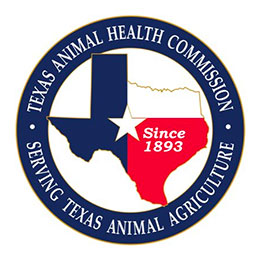Equine Infectious Anemia Confirmed in Harris County Horse
© Texas Animal Health Commission

AUSTIN, TX–JANUARY 31, 2024–Texas Animal Health Commission (TAHC) officials confirmed equine infectious anemia (EIA) in a Quarter Horse on a Harris County premises January 24, 2024. This is the first confirmed case of EIA in Texas this year.
After regulatory testing performed to meet regulatory requirements, the horse was confirmed positive for the disease. The premises has been quarantined and will not be released until the TAHC's requirements are met. TAHC staff are working closely with the owner and local veterinarian to monitor potentially exposed horses and implement biosecurity measures.
"EIA spread can easily be prevented when humans practice strong biosecurity, follow state testing requirements, and prioritize sanitary practices, especially when injecting horses," said Dr. Lewis R. “Bud” Dinges, TAHC executive director and state veterinarian. “The TAHC encourages equine owners to stay diligent, specifically with horses that congregate or participate in events, and keep equine up to date on "Coggins” tests."
EIA is an incurable, infectious viral disease spread through blood-to-blood contact, not through proximity or direct contact. The virus can be transmitted from an infected equine to an uninfected equine by blood-feeding insects such as horseflies, deerflies, or stable flies. People have played a large role in transmission in Texas by using contaminated medical equipment, such as needles, syringes, IV sets, and medications. When equipment is contaminated with blood from an infected horse, it can spread the disease to healthy, unexposed horses when used again.
The most common clinical sign of acute EIA is fever, which often precedes the development of other signs. In chronic cases, clinical signs such as muscle weakness, anemia, and swelling of the lower legs, chest, and abdomen may occur. Veterinarians and producers play an important role in stopping the spread of EIA and other bloodborne equine diseases by reporting sick equine.
The TAHC reminds equine owners that all Texas equine participating in Texas events must have a negative EIA test within the past 12 months. Equine owners who frequently participate in events with equine from other states are encouraged to speak to their veterinarians about Extended Equine Certificate of Veterinary Inspection’s (EECVIs). The TAHC allows veterinarians and horse owners the option of a six-month health certificate, if a current EIA test has been provided. Horse owners are required to keep the EIA test document or "Coggins papers" and have them available when traveling with horses. Contact your private veterinarian for testing.
Additional Texas EIA cases this year will be posted on the Equine Disease Communication Center (EDCC) website.
For more information on EIA CLICK HERE.






